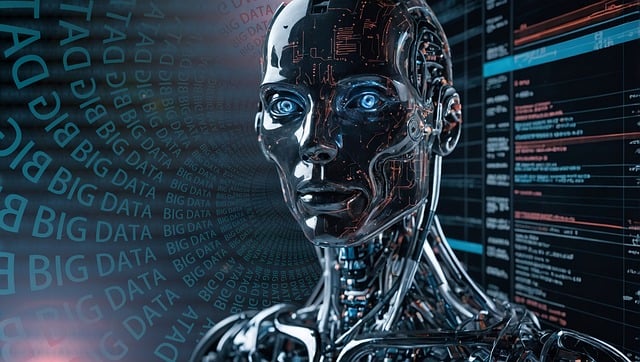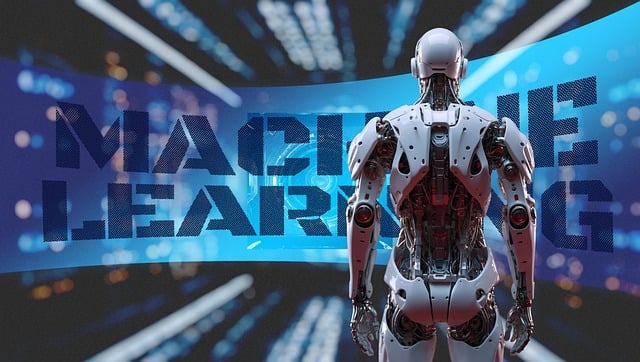
Artificial General Intelligence (AGI) seems all too possible and likely now. This means that machines may soon mimic any intellectual task a human can perform, from simple data analysis to complex problem-solving and decision-making. This leap in technology isn’t just about smarter machines; it’s about reshaping how we live, work, and interact with the world around us.
For consultants and knowledge workers, the emergence of AGI, powered by advancements from giants like ChatGPT, Claude, Watson, Google Deep Mind, and Gemini, presents an unparalleled frontier of opportunities and challenges. The impact of AGI stretches far beyond automation, promising to transform relationships, entertainment, and notably, the workplace, where it has the potential to augment human expertise with unprecedented efficiency and insight.
As this technology evolves, understanding how AGI will integrate into various sectors becomes crucial. For knowledge workers and consultants, the ability to adapt to and harness AGI’s capabilities will be key to staying relevant and competitive. This article looks into the current state of AI in consultancy, explores AGI’s potential impacts on the sector, and addresses the challenges and risks of implementing AGI. By preparing for the AGI revolution, professionals can navigate the transitions with confidence, ensuring they leverage AGI not just to enhance productivity but also to establish deeper connections through an understanding of human needs and psychology.
Table of contents
- Understanding AGI
- Current State of AI in Consultancy and Knowledge Work
- Potential Impacts of AGI on Consultancy
- AGI’s Influence on Knowledge Workers
- Challenges and Risks of Implementing AGI
- Conclusion
- FAQs
- What is the Current Status of Artificial General Intelligence (AGI)?
- How Soon Might We Achieve Artificial General Intelligence?
- Which Organizations Are Leading the Development Towards AGI?
- What Are Potential Advantages of Articial General Intelligence (AGI)?
- What Are The Potential Disadvantages of Artifical Intelligence AGI?
Understanding AGI
Understanding AGI involves grasping its capabilities and distinguishing it from other forms of AI. Here’s a breakdown to simplify these concepts:
AGI vs. Narrow AI:
- AGI (Artificial General Intelligence): Also known as ‘strong AI’ or ‘full AI’, AGI can perform any intellectual task that a human being can. It encompasses a wide range of cognitive tasks, including reasoning, problem-solving, perception, learning, and language comprehension.
- Narrow AI: Designed to perform a specific task or a narrow set of tasks. Examples include chatbots or image recognition systems.
Key Characteristics of AGI
- Human-like Cognitive Abilities: AGI replicates human cognitive abilities such as reasoning, problem-solving, and language comprehension.
- Self-awareness and Consciousness: Some experts believe that AGI would possess self-awareness and consciousness, enabling it to adapt and solve problems in varied environments.
- Versatility: AGI’s flexibility allows it to perform tasks across various industries and sectors, showcasing its problem-solving approach.
- Advanced Understanding: It would have the ability to understand and use symbol systems, different kinds of knowledge, and belief systems, along with executing tasks that no existing computer can achieve.
Practical Examples and Future Potential:
- Examples of AGI Capabilities: AGI could potentially read and improve human-generated code, perceive depth in static images, understand human language, and navigate physical spaces more effectively than current systems.
- Existential Risks and Singularity: While AGI offers immense potential, it also poses existential risks to humanity. The concept of singularity refers to a future where AI surpasses human intelligence, highlighting the need for careful consideration and research in the development of AGI.
- Current State and Research: AGI is not yet a reality but is the subject of significant ongoing research. Current examples that hint at the future potential of AGI include self-driving cars and advanced language models like ChatGPT.
Understanding AGI is crucial for grasping its potential impact on our lives and work. Its development promises to usher in a new era of efficiency and capabilities, far beyond what we currently imagine. However, it’s equally important to approach AGI with caution, considering both its transformative potential and the risks it poses.
Current State of AI in Consultancy and Knowledge Work
The integration of Artificial Intelligence (AI) into consultancy and knowledge work is transforming the sector in several key ways, enhancing efficiency, automating routine tasks, and enabling a more strategic focus for experienced professionals. Here’s a closer look at the current state of AI in this field:
Revolutionizing Consulting Stages:
- AI, especially advancements in enterprise capabilities like GPT, is set to revolutionize consulting, particularly in the initial stages.
- It acts as an accelerator, making consultants more efficient by aiding in structuring problems, writing texts, creating slides, and more.
- This shift may decrease the demand for analysts while increasing the need for more experienced professionals with advanced problem-solving skills.
Generative AI in Action:
- Examples:
- Attorneys utilize Harvey for case law access.
- Marketers and advertisers leverage Generative AI for content creation.
- Corporate banks analyze and summarize financial market information using Generative AI.
- Key to Effectiveness: Access to high-quality data is crucial for the success of generative AI.
- Early Adoption Advantage: Organizations that identify and implement generative AI use cases early will gain a competitive edge.
AI’s Broad Impact on Consultancy:
- Efficiency in Data Analysis: AI systems can analyze vast data sets, identifying patterns that may be challenging for human analysts.
- Automating Routine Tasks: Tasks such as data entry, scheduling, reporting, and managing mail traffic can be automated, freeing up time for more strategic work.
- Enhanced Decision Making: AI algorithms analyze customer preferences and behavior, providing tailored solutions and advisory services. This capability extends to risk assessment and future market trend simulation.
- Knowledge Organization: AI helps organize knowledge within firms, making it easily accessible and fostering internal training through personalized learning paths.
- Consulting Firms’ AI Tools: The development of proprietary AI-based tools and platforms addresses specific client needs, showcasing the sector’s adaptation to this technological advancement.
This detailed exploration reveals the significant role AI plays in reshaping consultancy and knowledge work, highlighting its potential to enhance operational efficiency, decision-making, and personalized service delivery. The strategic implementation of AI tools not only streamlines processes but also empowers consultants to focus on higher-level problem-solving and client relationship building, ensuring they remain competitive in a rapidly evolving technological landscape.
Potential Impacts of AGI on Consultancy
The advent of Artificial General Intelligence (AGI) is set to significantly impact the consultancy sector, particularly in the realms of software development and project management. Here are some key insights into how AGI will reshape the industry:
Software Development and Customization:
- According to Giannis Rousopoulos in an article on LinkedIn, a good test of AGI would be to possess the capability to replicate complex applications, such as Airtable or Salesforce, simply from a video or stated requirements. This process would include AI-produced and customized app development and data migration, all within an astonishingly short time frame of 20 minutes.
- This rapid development and customization ability will not only boost the demand for AI-powered software but also significantly increase the supply, altering the competitive dynamics within the tech industry.
Impact on SoftWare As A Service (SaaS) Companies:
According to IBM:
“Software as a service (SaaS) is application software hosted on the cloud and used over an internet connection by way of a web browser, mobile app or thin client.”
For SaaS Companies, AGI may enhance:
- Streamlining Workflows: AGI’s ability to streamline complex workflows into simpler tasks poses a significant threat to the core value propositions of SaaS companies focused on knowledge work.
- Business Models at Risk: The simplification of workflows endangers the business model of project management software by potentially reducing the need for such tools and challenging their pricing strategies.
- Bargaining Power and Margins: Established SaaS companies may find themselves losing bargaining power, leading to lower margins as AGI takes a more central role.
- Competition and Differentiation: With the rise of AI-native startups and the push towards self-serve app development, established businesses in the SaaS space will need to rethink their expansion and differentiation strategies.
Impact of AI on Project Management
Artificial General Intelligence (AGI) could have profound effects on project management and the role of human project managers. Here’s a detailed look at the potential impacts:
Enhanced Efficiency and Productivity

- Automation of Routine Tasks: AGI can automate routine administrative tasks such as scheduling, resource allocation, and progress tracking. This automation would reduce the time project managers spend on mundane tasks, allowing them to focus on more strategic aspects.
- Improved Decision-Making: With advanced data analysis capabilities, AGI can provide deeper insights and predictive analytics, helping project managers make more informed decisions. It can analyze vast amounts of data to forecast project risks, identify bottlenecks, and suggest optimal solutions.
- 24/7 Monitoring: AGI systems can continuously monitor project progress and performance, providing real-time updates and alerts. This constant vigilance ensures that any issues are promptly identified and addressed, improving overall project control.
Enhanced Collaboration and Communication

- Intelligent Communication Tools: AGI can facilitate better communication among team members through advanced collaboration tools, natural language processing, and real-time translation services, enabling seamless interaction in global teams.
- Conflict Resolution: By analyzing team dynamics and communication patterns, AGI can identify potential conflicts early and suggest ways to mitigate them, fostering a more harmonious working environment.
Strategic Planning and Innovation
- Strategic Insights: AGI can assist in strategic planning by analyzing market trends, competitor activities, and internal capabilities, providing project managers with insights to align projects with organizational goals.
- Innovation and Creativity: By handling routine and data-intensive tasks, AGI frees up project managers to focus on innovation and creative problem-solving, potentially leading to more innovative project outcomes.
Impact on Human Project Managers

- Shift in Role Focus: The role of project managers is likely to shift from operational management to strategic leadership. They will need to focus more on areas where human judgment, empathy, and complex decision-making are critical.
- Skill Set Evolution: Project managers will need to develop new skills to work effectively with AGI, including data literacy, technological proficiency, and an understanding of AI-driven tools and systems.
- Job Security Concerns: While some routine tasks will be automated, the need for human project managers will not disappear. Their expertise in leadership, stakeholder management, and complex decision-making remains invaluable. However, there may be fewer positions available, and competition for these roles could increase, necessitating continuous skill development.
Potential Threats to Jobs
- Displacement of Routine Roles: Lower-level project management roles focused on administrative tasks might be at risk. As AGI takes over these functions, organizations may require fewer human resources for these positions.
- Reorganization of Teams: The integration of AGI might lead to a reorganization within project management teams, with a greater emphasis on roles that require human creativity, strategic thinking, and interpersonal skills.
- Lifelong Learning Requirement: To remain relevant, project managers will need to embrace lifelong learning, continuously updating their skills to complement AGI capabilities.
Overall Effect of AGI on Project Management
AGI is poised to transform project management significantly by automating routine tasks, enhancing decision-making, and improving efficiency. While it poses some risks to certain job roles, it also creates opportunities for project managers to evolve their roles and focus on strategic, innovative, and human-centric aspects of project management. Those who adapt and develop new skills will find that AGI can be a powerful ally, enhancing their capabilities and effectiveness in managing projects.
Broader Industry Implications:

- Innovation Cycles and Market Dynamics: The industry can expect shorter innovation cycles, more frequent boom and bust periods, and an increased power of AGI providers, which will drive the most monetizable applications to rely on top-tier AGI technology.
- Redistribution of Knowledge Workers: As AGI simplifies many routine tasks, there will be a redistribution of knowledge workers, necessitating a shift in skill sets and roles within the consultancy sector.
- Potential Mitigation through Web3: The decentralized nature of Web3 and blockchain technology could offer some mitigation against the centralization risks posed by dominant AGI providers. The link about Web3 is to an Ethereum article.
- It traces the history of Web 1.0 the original internet) through Web 2.0 (the rise of social media and interactions controlled mainly by large corporations) and then Web 3.0 (based on blockchain and digital currency with the prospect of enhancing privacy, security, improving searches, and with built in ownership of everything you produce on line).
- On two points I find their description to be simplistic. One is that Web 1.0 was not just read only. People could email each other. The first blog was established in 1993. People could comment on blogs. So interaction was possible and happened already on Web 1.0, although the interactivity of Web 2.0 has produced a vast increase in interactivity. The other point is that for the emerging Web 3.0 problems have happened with Bitcoin providers and Blockchain and may occur in the future.
These insights underscore the transformative potential of AGI on the consultancy landscape, necessitating a proactive approach from companies to adapt and thrive in this evolving environment.
AGI’s Influence on Knowledge Workers

In the era of Artificial General Intelligence (AGI), the landscape for knowledge workers and consultants is poised for significant transformation. Here’s how AGI is expected to influence their roles and the broader industry:
Valuable Skills and Productivity:
- Highly capable consultants may see their productivity doubled as AGI takes on routine tasks, allowing them to focus on complex problem-solving and strategic planning.
- Continuous learning and flexibility will be paramount, with a focus on developing new skills to stay ahead in the industry.
AGI’s Broad Impact:
- AGI will transform sectors like healthcare and education by addressing complex problems, boosting creativity, and improving logistics.
- New job types will emerge where humans and AGI collaborate, especially in healthcare, providing opportunities for knowledge workers to engage in more meaningful tasks.
Adaptation and Innovation:
- The importance of understanding AI and AGI technologies cannot be overstated for consultants aiming to remain relevant.
- Ethical and economic considerations will play a critical role, with organizations needing to adapt their workforce for continuous learning and development across a range of skills.
- Generative AI technologies will serve as tools to reduce cognitive load, enhance productivity, and improve decision-making processes, thereby changing the mix of work activities for knowledge workers.
This evolving landscape underscores the necessity for knowledge workers and consultants to embrace AGI, leveraging its capabilities to enhance their roles and contribute to their fields more effectively. Continuous adaptation, skill development, and ethical considerations will be key to navigating the challenges and opportunities presented by AGI.
Challenges and Risks of Implementing AGI
Preparing for the AGI Revolution
As we stand on the cusp of the AGI revolution, the steps we take now can significantly influence its impact on our world. Here are key strategies for preparing for the AGI revolution:
Understanding and Mitigation:
- Grasp the potential impacts of AGI and take proactive steps to mitigate risks. This involves both individual and collective efforts to comprehend AGI’s capabilities and limitations.
- Encourage a global conversation on governing AGI systems, focusing on fair distribution of benefits and access. This includes setting up frameworks for international collaboration on legal, ethical, and safety guidelines to ensure AGI advances human well-being.
Adaptation and Co-evolution:

- Prepare for a gradual transition to a world with AGI, allowing time for adaptation at various levels—personal, policy-making, and institutional. This slow integration helps in understanding AGI’s benefits and downsides, adjusting the economy, and implementing necessary regulations.
- Strengthen world institutions with additional capabilities to make informed decisions about AGI. Developing new alignment techniques as AGI models become more powerful is crucial for maintaining control and ensuring safety.
Economic Diversification and Labor Market Adjustments:

- Diversify the economy with a focus on sectors less affected by automation, such as tourism and human-centered services. This approach helps in cushioning the impact of job displacement due to AGI and AI advancements.
- Anticipate significant labor market changes, with activities accounting for up to 30% of hours worked in the US economy potentially being automated by 2030. Generative AI is expected to enhance job functions rather than eliminate them, necessitating a shift towards higher-wage jobs and occupational transitions.
- Employers should adopt more expansive hiring approaches, focusing on skills and competencies rather than credentials. Recruiting from overlooked populations and providing training that keeps pace with evolving needs will be essential.
These strategies underscore the importance of preparation, adaptation, and proactive governance to harness the benefits of AGI while navigating its challenges. By taking these steps, we can aim to empower humanity to flourish in the universe, share the benefits of AGI widely and fairly, and navigate the significant risks it poses.
Conclusion
We have explored the promises and challenges of Artificial General Intelligence and its potential effects on consulting and knowledge work. AGI acts as both a huge source of opportunities and a potential disruptor, which underscores the importance of an adaptive mindset among professionals. By embracing continuous learning, ethical technology application, and collaboration, consultants and knowledge workers can leverage AGI. This can enhance their productivity and decision-making capabilities and enable them to forge deeper, more meaningful engagements across industries.
The journey toward integrating AGI within our professional ecosystems is complex, and will require both innovation and introspection. As we stand at this technological crossroads, the proactive steps we take towards understanding, preparing for, and guiding the development of AGI will determine the breadth of its impact. The time to prepare is now, ensuring that the advancement of AGI contributes positively to our collective future, fostering an environment where technology amplifies human potential and creativity rather than diminishes it. In the face of this revolutionary change, we are responsible for ensuring a future that venerates the harmonious coexistence of humans and artificial general intelligence.
accounting AI AI writing become a consultant bootstrapping career move ChatGPT clinical operations clinical research clinical research associate clinical trials consultancy business consulting consulting skills content marketing contracts cruise ship deliberate practice diversify income do your consulting work anywhere find clients freelance consultancy future grow your consultancy habits how much to charge improve performance invoices learning market research mentors money network niche plane productivity register your business sales funnel security Singularity starting your consulting business time management tracking time web hosting work-life balance
FAQs
What is the Current Status of Artificial General Intelligence (AGI)?
Artificial General Intelligence (AGI) remains a concept in the realm of theoretical artificial intelligence, boasting capabilities that could match human intelligence. However, the consensus among experts suggests that the realization of AGI could still be decades or even centuries away.
How Soon Might We Achieve Artificial General Intelligence?
Recent comments from notable figures in the technology sector, such as Shane Legg of Google DeepMind and Elon Musk, suggest a possibility of achieving AGI within this decade. Specifically, Shane Legg estimated a 50% chance of AGI’s development by 2028, while Elon Musk projected the advent of full AGI by 2029. Elon Musk has revised this to even sooner.
Which Organizations Are Leading the Development Towards AGI?
DeepMind, a London-based startup acquired by Google, and OpenAI, are two pioneering organizations that have explicitly aimed to develop Artificial General Intelligence. DeepMind embarked on this mission in 2010, followed by OpenAI in 2015, which also emphasized a commitment to safety in their development process. Currently, Claude and others may be moving toward AGI.
What Are Potential Advantages of Articial General Intelligence (AGI)?
General AI, or GenAI, is anticipated to significantly enhance automation and efficiency across various sectors. It is expected to reduce workloads by automating repetitive and labor-intensive tasks, thereby enabling businesses to optimize their operations and boost overall efficiency.
What Are The Potential Disadvantages of Artifical Intelligence AGI?
AGI has several potential disadvantages including that it may displace people from jobs, lack transparency and explainability (we may not understand how it works or gets to its conclusions), it may manifest bias, and we may experience existential risk. AGI might become more intelligent that humans (which has been called the singularity) and we might lose control of our destiny. We will need to protect our interests to make sure that AGI serves humanity and does not threaten our autonomy or survival.
